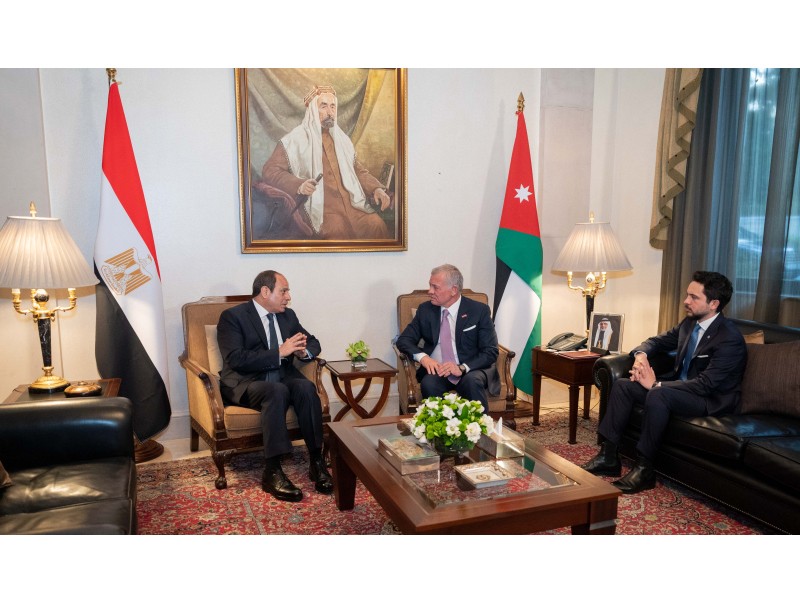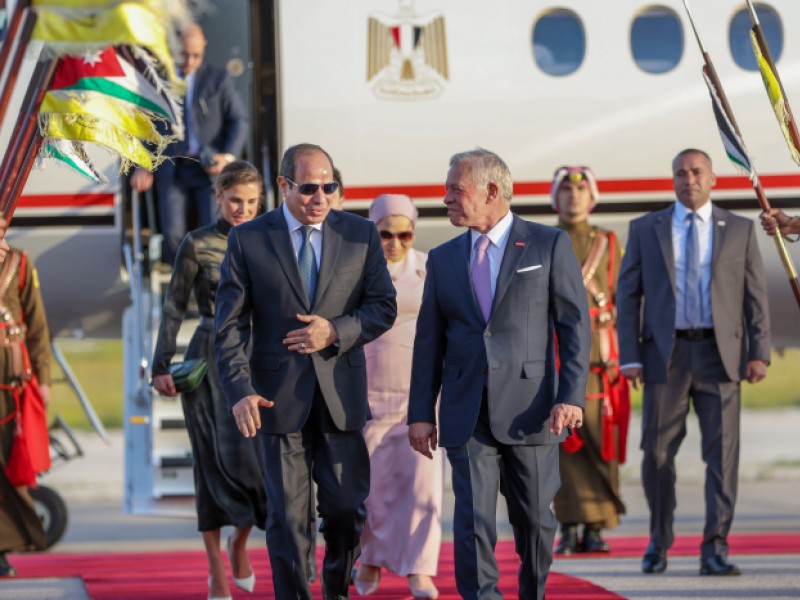Queen Rania Supports Women in Law

(Office of Her Majesty—Amman) In order for a country to advance at its fullest potential, its human resources must be developed and nurtured. Her Majesty Queen Rania Al Abdullah has often noted that can only be the case when the entire population, including women, are encouraged to join the workforce.
On that note, Her Majesty met 32 women judges in Amman, just days after celebrating International Women's Day, to encourage their contribution to the field of law, and to promote women's participation in the workforce.
Also present at the meeting were: Minister of Justice Shareef Al-Zoubie; Secretary General of the Ministry of Justice Mohammad Al-Ghazou; Head of the Judicial Council Mohammad Al-Ragad; and General Manager of the Judicial Institute Mansour Al-Hadidi
Women judges first started joining the judiciary in Jordan in the late 1990s. Most women judges tackle cases related to information technology, mediation, family issues, and juvenile justice. Since the late 1990s the participation of women in this field has increased steadily. Her Majesty noted how proud she was to witness this phenomenon and expressed her hopes that women's participation will continue to grow.
"It's important for us to encourage increasing women's participation," she said, "and to nurture women's role in all sectors."
Queen Rania cited the 2005 Arab Human Development Report, "Towards the Rise of Women in the Arab World", noting that Jordan is currently in line with the recommendations. The report asserts the need to increase women's participation in the workforce by creating a more conducive working environment, especially in the fields of justice and the rule of law.
"We have just started our journey… Although the legal framework does exist, with time we will be able to create such an environment by highlighting examples and success stories of women like you," she told the judges.
The judges engaged Her Majesty in a frank discussion about the challenges they faced and how they overcame them. They also discussed the emergence of specialties such as intellectual property rights, trademark laws, and dealing with monopolies and unfair practices in the Kingdom.
They discussed ways in which women can help to increase awareness amongst students at Jordanian universities about these specialties, and create interest in studying these subjects.
The judges also spoke with the Queen about their role in protecting children, especially in focusing on juvenile delinquents. Regarding youth offenders, they explored the benefits of rehabilitation, as opposed to incarceration.
Al-Zoubie announced two important initiatives during the meeting, which will work to increase women's participation in the field of law. The first establishes a fund, set up with JD 100,000 seed money. The fund will facilitate training courses, provide grants, and create a more conducive working environment for women
The second initiative will create a scholarship for women studying at the Judicial Institute. The institute hopes to increase women's enrollment gradually to at least 20 percent. The Judicial Institute provides an initial training program (two years) for new judges and continuous training programs for judges who are currently in post. The institute is also a hub for training judges from the region.
During an interview last year, Her Majesty said, "When a woman is educated and her life is improved, then she can improve the life of her children." Creating such funds and highlighting leading examples of educated and empowered women, such as these outstanding judges, will hopefully serve to improve the lives of women and families across the Kingdom.
Featured
Queen Rania's official website
This website does not support old browsers. To view this website, Please upgrade your browser to IE 9 or greater
Your browser is out of date. It has known security flaws and may not display all features of this and other websites. Learn how to update your browser



